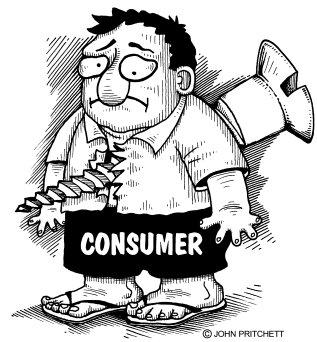Whose Farm Bill is It?

Over 10 years ago, fellow Ag Law contributor Jim Chen asked, "Why, despite the triumph of the consumer welfare model in virtually every other facet of American economic thought, does producer welfare continue to dominate agricultural policy in the United States?" (Jim Chen, The American Ideology, 48 Vand. L. Rev. 809, 815 (1995)).
That same sentiment was noted a week or two ago, by yet another Ag-law contributor, as Susan Schneider pointed out in her post on grass-fed beef, that the controversy surrounding the "grass fed" label. Professor Schneider noted, "[c]onsumers may interpret [the USDA's labeling] responsibility as something that the government does for their benefit, the USDA’s mission to help America's farmers and ranchers is often at issue, and labeling decisions may reflect a balancing of farmer vs. farmer interests."
Indeed, the Secretary of Agriculture apparently sees the "organic" label as one that benefits the industry, not the consumer: “‘The organic label is a marketing tool,” Secretary [of Agriculture] Glickman said. ‘It is not a statement about food safety. Nor is ‘organic’ a value judgment about nutrition or quality.’” (quoted in Michael Pollan, Omnivore's Dilemma: A Natural History of Four Meals
Perhaps it is time to raise the question again: Who is benefiting, these days from agriculture policies and in particular the Farm Bill. Although I'm not sure that the answer has changed much, perhaps change is afoot. Two hints of such a possibility: The Nation's food issue, encouraging its readers to make their voices heard before the Farm Bill is signed again (including an essay by Omnivore's Dilemma author Pollan), an editorial series in the Minneapolis Star Tribune on farm policy. The Star Tribune (or Strib as it is affectionately know to twin city residents) encouraged its readers to pay attention to the farm bill. The focus of the Strib's editorial series was the environmental impact of farming. Minnesota's Farm Bureau president responded with a letter to the editor, in which he argued: "No one knows our land, our environment and wants to preserve it more than those of us who live and work on it every day."










0 Comments:
Post a Comment
<< Home